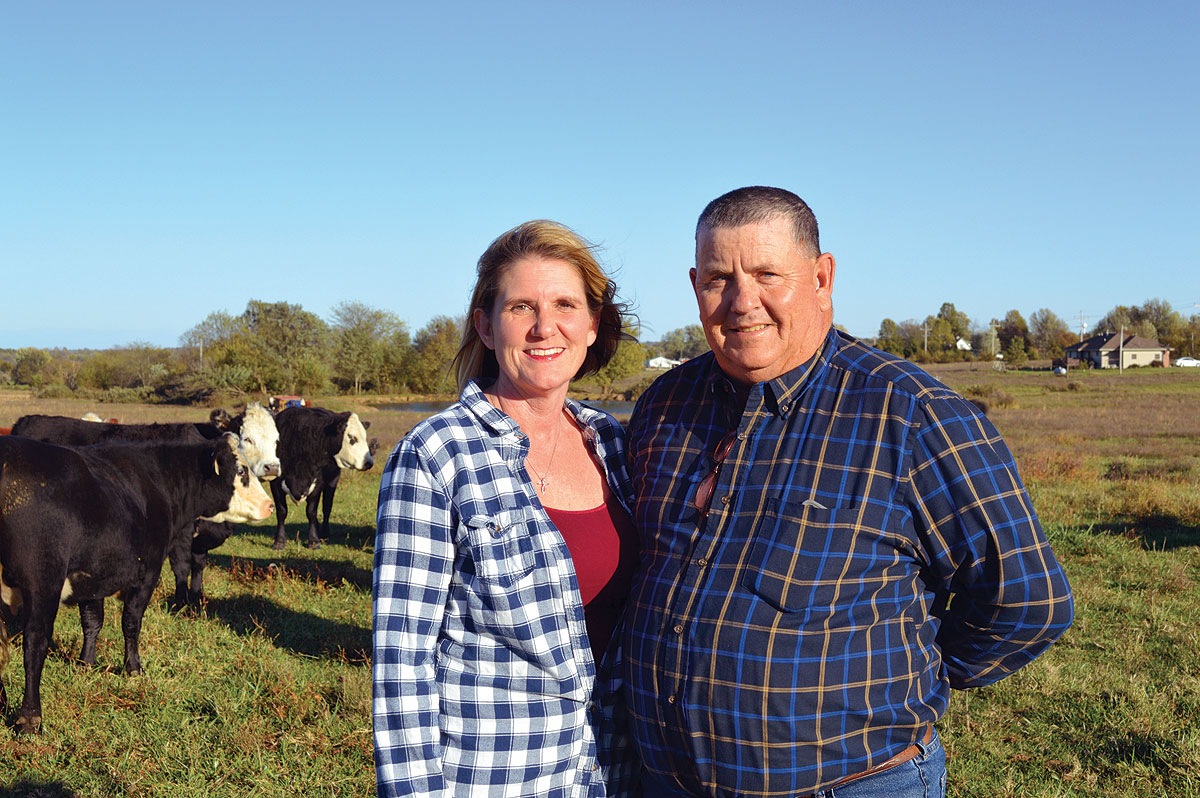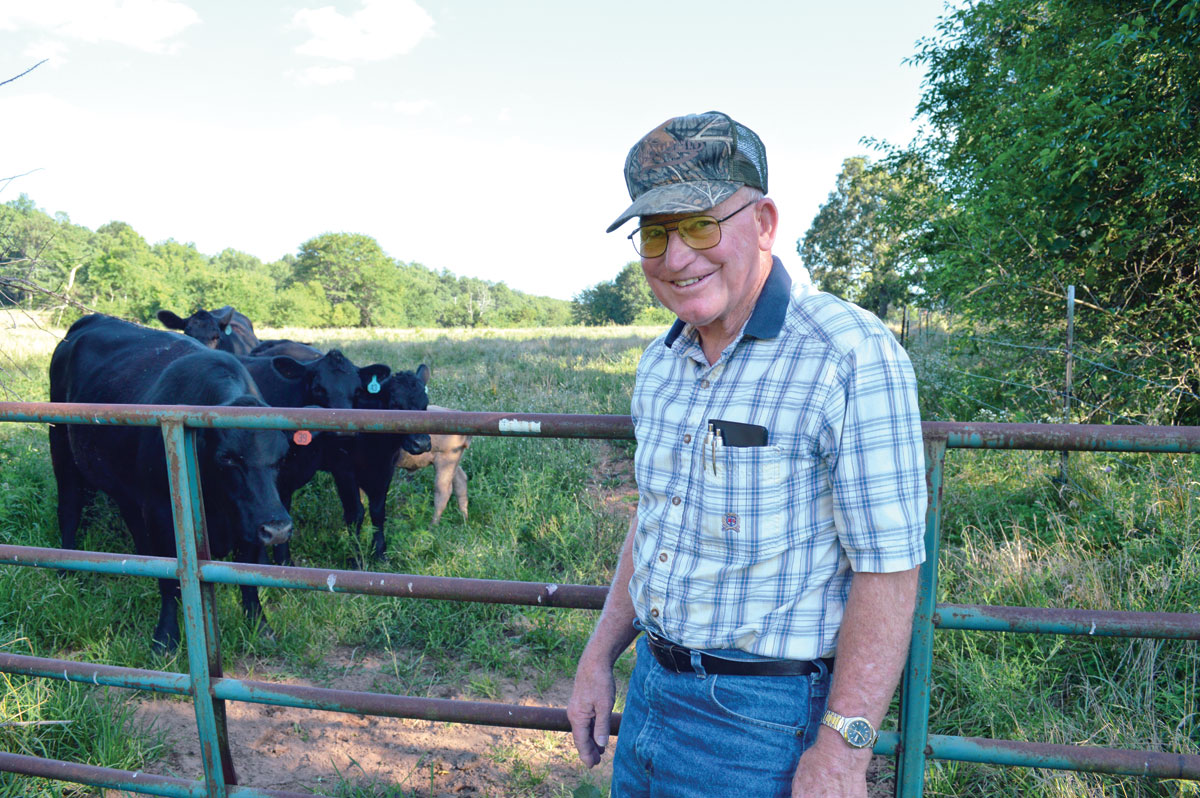
Hopkins Farms got in on the ground floor of registered Black Hereford production in 2010
As a third-generation cattle farmer, David Hopkins, continually keeps a keen eye out for strategies to improve his herd.
In 2010, David discovered a fairly new breed that captured his attention – Black Herefords.
“I have always had cattle and I have always liked black baldie cows,” David said. “I just started studying the breed and talking to people about it and decided we would try it.”
A polled Hereford breeder named John Gage established the American Black Hereford Association (ABHA) in 1994. According to the ABHA, Gage created the Black Hereford breed because he wanted to eliminate red baldie calves produced in Hereford/Angus cross herds. Gage felt his red baldie calves sold for less at the sale barns than his black baldie calves out of the same herd.
Thus, Gage formed the ABHA as an avenue to build Hereford/Angus cross cattle that produce black calves with white faces. Through the association, members can register their Black Hereford animals, track EPDs and network with other breeders. In order to register an animal with the ABHA, it must be black and 62 1/2 percent Hereford.
David and Sandy Hopkins look at the Black Hereford breed as a way to produce quality, registered, black-baldie calves on their farm in Marionville, Mo.
“Anybody can have a black baldie, but they don’t have a pedigree or know anything about the animal’s EPDs,” David commented.
When the Hopkins began in the Black Hereford business, David and Sandy owned a herd of 30 registered Angus cows. David purchased a Line One Horned Hereford bull to use on his registered Angus cows. Those cows produced Hereford/Angus cross calves called F1s.
“It took us two seasons. I kept all the heifers out of those cows and that is kind of how we got started,” David said.
In their seven years of breeding Black Herefords, David and Sandy have been pleased with the results. Their calves do not receive any creep and are weaned at 205 days.
“Our weights have been really good. Our bulls average 600 pounds and our heifers average 540 pounds,” David explained. “We are pretty proud of that.”
When Hopkins Farms joined the ABHA, David and Sandy were among only a handful of breeders in Missouri. Now the ABHA states it is one of the fastest growing breeds in the United States.
“It has been amazing to go to the association meetings, because when we first went I was sitting there thinking, ‘What have we gotten into?’” Sandy said with a chuckle. “Now when we go, it is much bigger and you can really see it growing,” Sandy added.
Hopkins Farms manages 50 momma cows on 160 acres. The Hopkins calve half their herd in the spring and the other half in the fall. David searches the country for the best registered, homozygous-Black Hereford bull he can find.
“My dad and granddad always said, ‘The easiest way to improve your herd is with a better bull than you have cows,’” David recalled. “If you are always buying better bulls than you have cows, then you are improving your herd.’’
The Black Herefords have proven themselves to be very marketable. Hopkins Farms sell cattle to seedstock producers throughout the country. In addition, the Hopkins sell their Black Herefords through the ABHA’s annual sale, The Cattle Range website and through word of mouth.
Cattle farmers near and far reach out to Hopkins Farms wanting Black Hereford bulls for their cattle operations.
“Of course the idea behind that is to get the black baldie calves that always top the sale market,” David said. “You get the hybrid vigor with the Black Herefords, you get extra growth, plus you get the black-white face that seems to always bring 7 to 10 cents more per pound.”
David and Sandy both balance full-time jobs away from their farm. David is a construction superintendent for Emery Sapp & Sons, and Sandy is the director of Member and Provider Services at CoxHealth Plans.
Due to their busy life outside of the farm, they only keep high-performing, easy-doing cows.
“We don’t have time to baby them a whole lot. In the winter-time it is dark when we leave and it is dark when we get home,” David said.
The Hopkins only retain cows that raise solid calves, are good mothers, breed-back in a timely manner, have a calf every year and fend for themselves. “They don’t get a whole lot extra here. They get salt, hay in the winter, pasture in the summer and that’s it. They are on their own,” David explained.
Hopkins Farms is excited to be a part of a breed that is rapidly growing in popularity.
“I think this is going to go nowhere but up,” David concluded.






